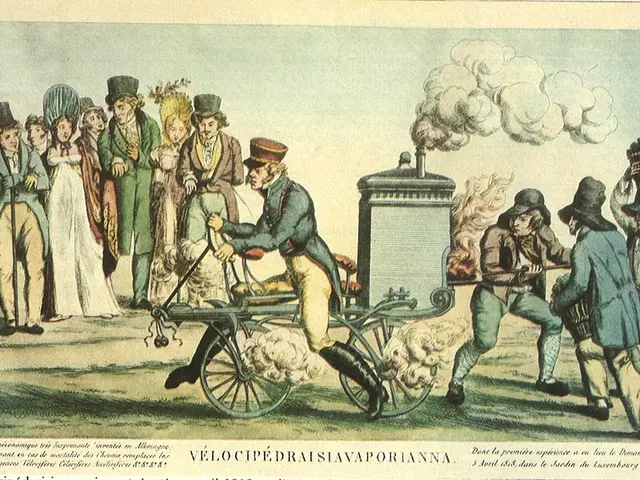Tobacco-related illnesses on the rise in MV - Increase in tobacco-related health issues reported in MV
Rising Tobacco Risks in Mecklenburg-Vorpommern: A Public Health Concern
Mecklenburg-Vorpommern, the northeastern German state, is grappling with a significant increase in tobacco consumption and related health issues. According to a report released by KKH on World No Tobacco Day (May 31), the number of tobacco addicts in the region has soared by 77 percent from 2013 to 2023.
KKH estimates that approximately 100,000 residents of Mecklenburg-Vorpommern sought treatment for tobacco addiction, withdrawal symptoms, acute tobacco poisoning, or mental health issues related to tobacco in 2023. The data suggests that every sixth tobacco-dependent individual in the region suffers from chronic obstructive pulmonary disease (COPD), a leading cause of death globally.
COPD, a lung condition, causes permanent damage, making it progressively harder for sufferers to breathe and increasing the risk of heart attacks and lung cancer. Michael Falkenstein, an addiction expert at KKH, remarks that the actual number of COPD cases among tobacco consumers is likely significantly higher than the reported figures.
Additionally, data from AOK Nordost shows a rise in mental disorders and behavioral disorders related to tobacco since 2013. In 2023, 9.4 percent of AOK insured individuals over the age of 15 in Mecklenburg-Vorpommern received a diagnosis for these conditions. However, it's important to note that this doesn't necessarily mean the number of tobacco addicts has increased but rather that doctors are now more likely to diagnose these conditions.
The increase in awareness of tobacco-related health risks might be the cause of this trend, with Germany's smoking rate either decreasing or remaining stable since 2013, according to large-scale surveys. However, Mecklenburg-Vorpommern's smoking rate is significantly higher than the national average, and the number of smokers in the region is cause for concern.
In response, Mecklenburg-Vorpommern's State Coordination Office for Addiction Issues supports the World Health Organization's campaign to raise awareness of targeted and manipulative strategies used by the tobacco and nicotine industry, with a particular focus on the enticement of young people.
Effective strategies to address tobacco addiction and related health issues across regions include public awareness campaigns, tobacco control policies, nicotine replacement therapy and counseling, youth prevention programs, healthcare system support, and community engagement. These efforts should be tailored to fit the local context, including cultural and economic factors, for optimal results.
- The escalating tobacco risks in Mecklenburg-Vorpommern necessitate a review of the community policy to incorporate stricter measures against tobacco use.
- The rising incidence of chronic diseases, including lung conditions like COPD and cancer, can be addressed through a comprehensive employment policy that promotes health and wellness programs.
- Considering the surge in mental health disorders related to tobacco, it is crucial for employers to implement policies that address mental health awareness and provide support for employees dealing with addiction.
- Given the significant rise in tobacco-related health issues, it is essential to prioritize Medical-conditions and Chronic-diseases prevention in policy-and-legislation discussions.
- In light of the growing concern about respiratory conditions exacerbated by smoking, it may be prudent for communities to develop and promote Fitness-and-exercise programs as part of their employment policy.
- As nutrition plays a vital role in overall health, nutrition guidelines should be incorporated into employment policies to support tobacco-free lifestyles and reduce the risk of Cardiovascular-health complications.
- To combat the tobacco epidemic, the political landscape should be influenced to enact policies that prioritize Health-and-wellness, aligning with the goals of the World Health Organization and General-news channels.








